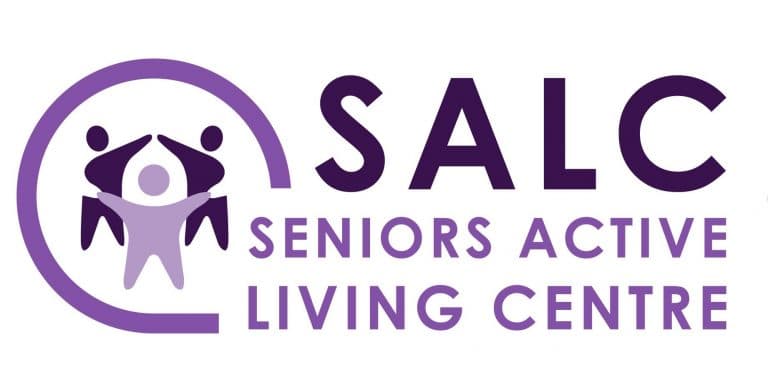A Guide to the Accessibility for Ontarians with Disabilities Act, 2005 is not legal advice. It is not a legal document. Its purpose is to provide information only about what is in the Act and where to look in the Act for information on specific topics.
Note: The original document is no longer on the Government site but this should still be of some use.
This guide gives an overview of the Accessibility for Ontarians with Disabilities Act, 2005 (AODA). If there is any conflict between the Act and this guide, the Act is always the final authority.
In this guide, you will find a summary of what is in the AODA. At the end of each section, you will find numbers in square brackets “[ _ ]”. The numbers tell you where to look in the Act to find exactly what it says about the topic.
There is also an index for the Act at the end of the guide.
TABLE OF CONTENTS
- Establishing Standards
- Developing Accessibility Standards
- Complying With Reports And Standards
- Inspections
- Director’s Orders And Administrative Penalties
- Appeals To Tribunal
- Municipal Accessibility Advisory Committees
- Administration
- Incentive Agreements
- Delegation And Documents
- Offences
- Conflict With Other Laws
- Regulations
- Annual Report
- Reviewing The Act
ESTABLISHING STANDARDS
When applying for this disability, you must meet certain standards. You must meet at least one of these standards to qualify for the program. An Accessibility Standard only applies to one person or organization. This person or organization must do one of the following:
- Provide goods, facilities, or services
- Employ people in Ontario
- Offer accommodation
- Owns/Occupies a building, structure, or premises
- Plays a role in business that the act may identify
DEVELOPING ACCESSIBILITY STANDARDS
When making the Accessibility Standards, certain people are on the board to make these rules to ensure that everything is fair for everybody. Our board consists of three different types of people from different backgrounds. These three people include:
- People who have or represent disable people to ensure that all standards are fair.
- People in which these standards directly apply to, such as a business or organization.
- Government that has direct ties with these businesses or organizations
During these meetings, there is a standard set as to what needs to be done to make Ontario more accessible by 2025. What can this group do to ensure that Ontario is accessible to everyone by 2025?
When these meetings are going on they discuss what laws could be put in place, policies, and other documents that may need to be placed to make this practical. They also look at problems that are in the way and what it will take to remove these barriers and how long it will take. This is why there are going to have to be policies because these barriers are going to have to be removed. Once a term is proposed they will then suggest it to the minister. The public members also can comment and give their opinion on this proposal as well. The minister, however, has the final say to whether or not this proposal will make it into the act or not. If a proposal is turned into a standard then within the next five years the committee has to review the standard and decide if it needs to be reviewed or kept. If the standard is doing what it was meant to or if it is not useful to the act. At this point, they can take the standard out or change it. Every so often these meetings will happen to determine if new guidelines need to be placed or if all the old ones are good. About every five years this will happen.
COMPLYING WITH REPORTS AND STANDARDS
When a standard is set, organizations or people that fall under that certain standard must adhere to it. A person or organization must also file reports each year. The director may determine to have a different filing schedule, however. The Accessibility Directorate of Ontario is what recommends what goes into the report but ultimately it is the minister who decides what needs to be in the report and how the information should be laid out and presented. This document is a document that sums up how the business or person is complying with the standard. A person of authority within the business must certify that all information given is correct before turning over the document.
A business, organization or individual person is required to comply with all standards and file reports at least once a year and if needed and decided more than once a year to assure that all standards are being followed.
INSPECTIONS
The AODA states that the minister is allowed to appoint inspectors at any time to see if a business/person/organization or following/complying with the standards or regulations of the act. There is a list, however, that an AODA Inspector will have to follow:
- He/she must inspect during business/daylight hours
- They have the authority to inquire about any person in the business about anything related to the inspection.
- They are allowed to ask for expert help such as an architect who would know the building better.
- They can contact the peace justice to acquire a warrant for search if required.
DIRECTOR’S ORDERS AND ADMINISTRATIVE PENALTIES
A director has the authority to follow up with a person, business, or organization that did not file their paperwork. During this time the director can choose to do a few things.
- He/She may choose to implement more information needed to complete the filing compared to the regular information needed. Just to make sure all the rules are being complied and followed.
- The director will issue a notice and give the business, person, or organization 30 days to state why they should not get an order issued against them.
- The director may also file an order to get payment against them called the administrative penalty. (There is a time when the business or organization can write why they should not get this penalty.)
- If these orders are not followed and you are not excused your director may choose to bring this matter to the court and it would proceed as a normal court hearing.
APPEALS TO TRIBUNAL
You can appeal an order that has been given to you under the AODA guidelines. A business, person, or organization has up to but not longer than 15 days to complete an appeal. There is a filing fee and in most cases, a written hearing will be held. What this means is that there is no visual meeting there is writing. You will write your statement and send it to the committee who will then decide if your appeal is approved or denied and will send your decision back. However, if the parties agree there is a good reason to meet in person they will decide to do so. However, most cases are written hearings.
MUNICIPAL ACCESSIBILITY ADVISORY COMMITTEES
Every town with a population of 10,000 or more people is required to establish an accessibility advisory committee. Two or more municipals may decide to join committees instead of having their own. If a similar committee was established before the AODA made this law, it should continue its municipalities. A town may choose to establish an accessibility advisory committee even if the population is under 10,000 people. The majority of this committee has to be people with a disability or people who stand for people with disabilities. This committee’s job is to give advice to the municipal about how to better make their town or city accessible.
ADMINISTRATION
Director and Inspectors
The deputy minister appoints all directors and inspectors.
Accessibility Standards Advisory Council
The minister also establishes the Accessibility Standards Advisory Council. This council gives the minister advice about many topics including but not limited to
- The process for developing the standards
- Progress made by the council’s standards
- Accessibility reports
- Public programs and organizations to educate the public about their organization
- Other information that relates to the act
A majority of this council is made up of people with disabilities. The minister may require this committee to hold public seminars to inform the public what they are and what they do. The minister may also require reports from the council as well from time to time.
Accessibility Directorate of Ontario
This is the section of the AODA that is responsible for day to day governing within the AODA community. This section of administration has many duties which include but are not limited to:
- Advising the minister
- Providing support to the Accessibility Standards Advisory Council and standard development committees
- Coordinating consultations
- Conducting research related to AODA information
- Informing the public about what they are and what they do (Providing information to the general public)
- Carrying out any other duties that the minister may request related to the AODA act
INCENTIVE AGREEMENTS
When you or your business are under the act you may receive an incentive to do more than required. Incentives are given to better the business/organization/ or person. These incentives require you to drop barriers that people with disabilities may have and have them be treated like normal people.
The minister may agree to enter an incentive agreement with a person, business, or organization. This incentive agreement is where the minister agrees to what the company has to do to receive this incentive and what the government incentive is. An example of an incentive would be having to file less paperwork on their business, person, or organization.
An inspection may be conducted if you are in an incentive agreement to make sure you are complying with your agreement. There are penalties for not complying with an incentive agreement.
DELEGATION AND DOCUMENTS
The minister has the power to delegate power to people of committees and people who are in the AODA program. He has the power to give them ministerial power.
The act says that certain documents must be administered and written by the minister, director, or tribunal issue however if a person with a disability requests another form of their information it will be delivered within a reasonable time frame.
The AODA makes sure you are given your information and that is why it is delivered personally or by email. Regular mail is not used to be given orders or other documents.
Personal delivery of notices go to one of a few places:
- The mayor, warden, reeve, chief officer or clerk of a municipality if it is a notice or an order for a municipality
- a director or officer of a corporation or the manager, secretary or another person who is in charge of the branch of a corporation
- A person who is in charge or in a partnership with a business
- For any organization, it will go to the person who appears to be in charge or where the organization does most of the business.
OFFENCES
When you do not comply with the standards there are offences. They can be pretty hefty. You will want to make sure you are aware of all the offences and all the rules.
The list below is a list of offences as ruled by the AODA.
-
- Providing false information in an accessibility report or to a director
- Failure to obey an order made under the AODA
- Block of failing to comply with an inspection
- Coerce, penalize, intimidate, or discriminate someone for seeking AODA enforcement.
If you fail to comply with all the rules and break the rules you may be subject to one or more of the following:
Up to $50,000 for each day or part-day that an offence happens
For a corporation, up to $100,000 for each day that an offence happens.
A director and or officer of a corporation or company are subject to fine if they are not complying with the rules as well. Their job is to make sure that everything is done to make sure that their organization or business does everything to avoid breaking the rules. That is why they are subject to individual fines as well as company fines.
CONFLICT WITH OTHER LAWS
If there are issues between the AODA regulations and the provincial law when it comes down to whichever gives the person with a disability the greater participation in Ontario. This would include areas of goods, services, facilities, employment, accommodation, structures, or buildings. Whichever law gives the greater good for the person with the disability will be the one in which will be held to the higher standard in Ontario.
REGULATIONS
The Lieutenant Governor has the power to change and make regulations for AODA. This is including but not limited to
-
- standards development committees have to develop proposed standards
- Reports
- making accessibility reports public
- the appointments of inspectors
- Administrative penalties
- fees and exemptions from the Act. For some types of draft regulations
However, the public has 45 days to give their opinions and comments to the administration.
The accessibility standards may decide to group a person or organization in a group that the AODA covers. The grouping may be based on many different factors including but not limited to
-
- Number of employees
- Annual revenue
- Type of industry
- Economic sector
- Size of building, structure, or premises
ANNUAL REPORT
An annual report is required by persons, businesses, and organizations to assure that they are following and complying with all the AODA regulations. The report also shows how effective their new statements are and how well they are being followed.
OADSA – Ontario Accessibility & Disability Stewardship Association
























